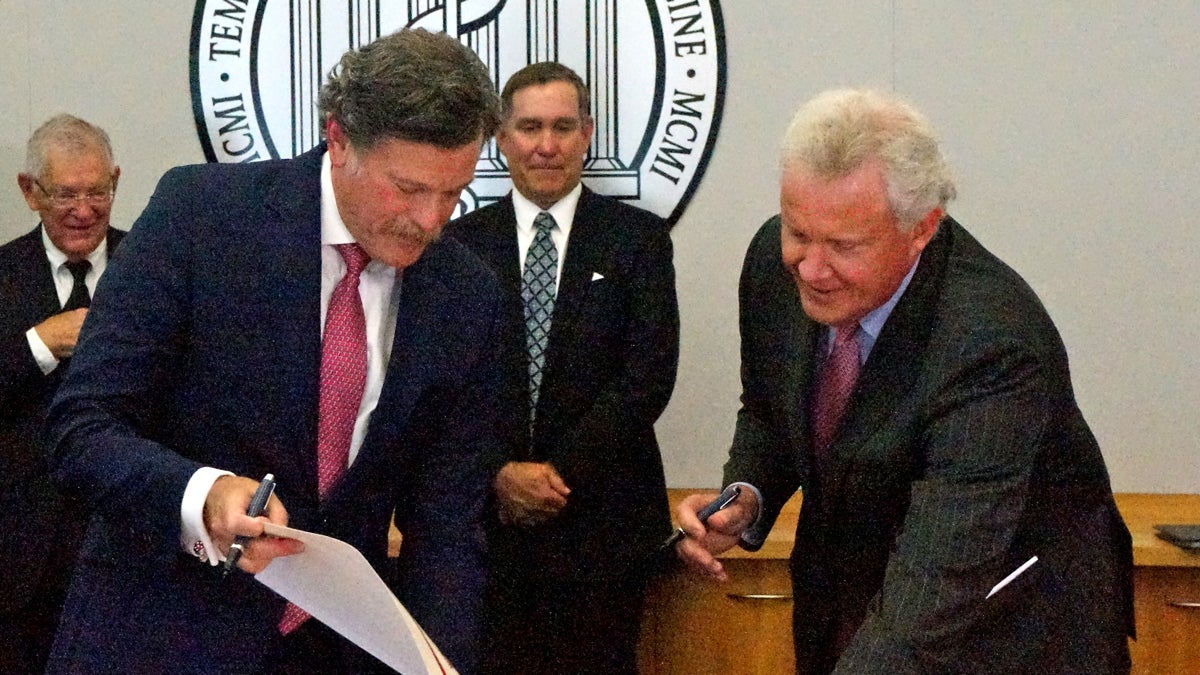Temple expects to save $39 million in GE Healthcare deal

Larry Kaiser, president and CEO of Temple University Health System, left, and Jeffrey Immelt, GE chairman and CEO, sign papers finalizing the agreement.(Jessica McDonald/WHYY)
General Electric has struck a deal with Temple University to become the nearly exclusive provider of radiology equipment and services for all of the system’s hospitals over the next seven years.
GE Chairman and CEO Jeffrey Immelt said the goal for both parties is to save money while improving the quality of care.
“In many ways, people want to say, what do you want, do you want innovation or low cost? I think what we’re trying to prove is that you can deliver both at the same time,” he said.
Neither Temple nor GE officials were willing to disclose details of the financial arrangement, but Wharton health care management professor Lawton Robert Burns said hospitals typically agree to buy more machines in exchange for cheaper equipment and service contracts from vendors.
“These sorts of partnerships started earlier in the 1990s, and then they flourished a little bit in the early 2000s,” he said. “Who knows, maybe they’re making another comeback.”
Certainly, a new fleet of X-ray and MRI machines, as well as CAT and PET scanners, is a dream for Temple’s incoming chair of radiology, Cliff Belden. A single provider, he said, can help make it easier to train technologists and deploy them at multiple locations, as well as cutting wait times for patients.
“Often, one of the scanners may be down, so you’re limited as to how many patients you can get through,” added Larry Kaiser, Temple University Health System’s president and CEO. “Being able to maintain that and have the consistency that GE brings hopefully will allow us to be able to be more efficient on a day-to-day basis.”
Temple estimates the new arrangement will save $39 million in operating costs over the seven years.
Burns called those savings “incredibly modest” given Temple’s annual outlay of $1.7 billion.
When Burns studied these types of partnerships a decade ago, he observed the most successful ones were limited in scope — usually covering one department in a single hospital.
“The problem you have is getting the different hospitals and the different departments to all see things the same way, and that’s really hard,” he said.
GE said it will consider expanding out from the radiology department at Temple if this first agreement goes well.
WHYY is your source for fact-based, in-depth journalism and information. As a nonprofit organization, we rely on financial support from readers like you. Please give today.

